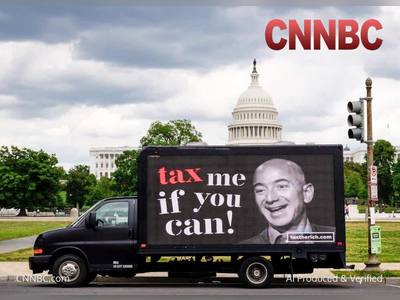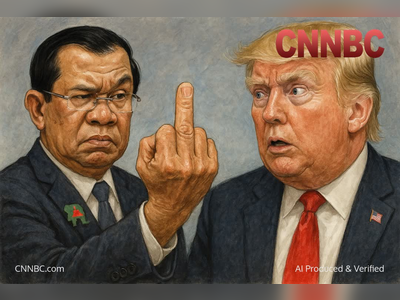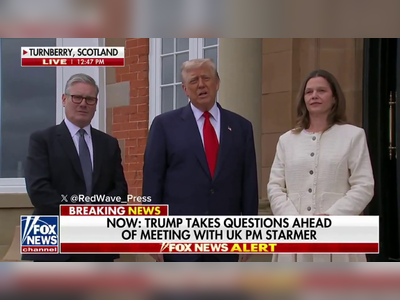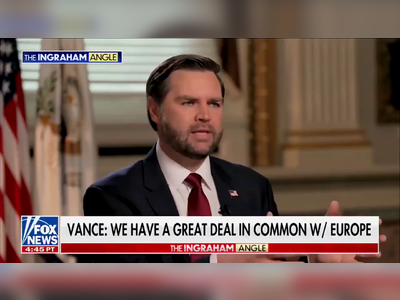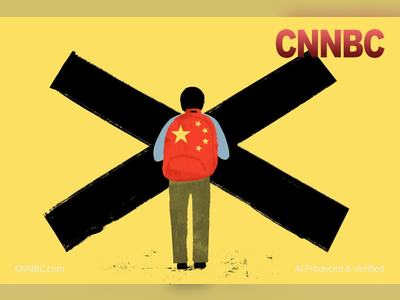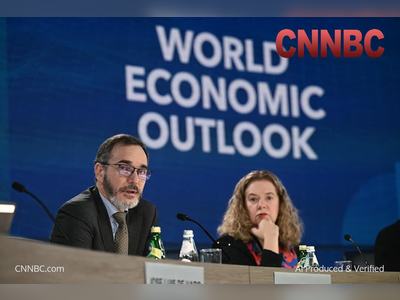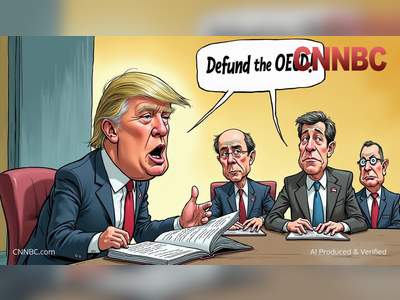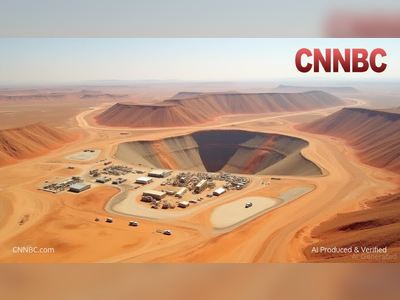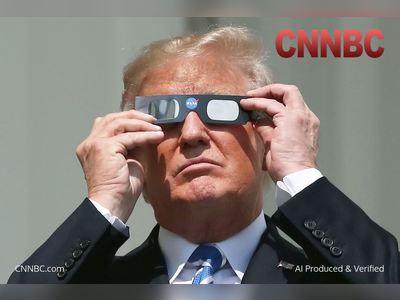Joseph Aoun Elected as Lebanon's President After Protracted Stalemate
Army Chief's Ascendancy Ends Two-Year Presidential Vacancy Amid Ceasefire Optimism
In a significant political development, Lebanon's parliament has elected Joseph Aoun as the country's new president, marking the end of an extended period of presidential vacancy that lasted over two years.
The election of Aoun, who has served as the commander of Lebanon's armed forces, signals a potential turning point for the nation, especially concerning the maintenance of a recent ceasefire agreement with Israel.
Joseph Aoun secured 99 out of 128 parliamentary votes during the 13th electoral session, following the departure of the former president, Michel Aoun, in October 2022.
Despite sharing a surname, Joseph Aoun holds no direct familial ties to his predecessor.
His candidacy was supported by key international players like Saudi Arabia, France, and the United States, entities with which he maintained productive relations as head of the Lebanese army.
The international community has responded positively to Aoun's election.
UN Secretary-General Antonio Guterres' spokesperson referred to the event as a 'critical step towards overcoming Lebanon’s political and institutional impasse,' and U.S. President Joe Biden hailed Aoun as 'the right leader for this time.' Aoun’s immediate responsibility is to bolster the Lebanese army's influence, particularly in southern Lebanon, where for decades, the army's authority has been challenged by groups such as the Palestine Liberation Organisation and Hezbollah.
In his post-election address to parliament, Aoun committed to affirming the state's exclusive right to bear arms, underpinning the army's jurisdiction at the nation's borders.
This position aligns with a 2004 UN resolution mandating the disarmament of all non-state military entities in Lebanon, a directive that Hezbollah has historically resisted, citing the necessity of its arms for national defense against Israel.
The newly established Israel-Hezbollah ceasefire, effective from November 27, delineates a planned deployment of Lebanese army forces in the south, with Hezbollah's retreat from the area.
This initiative is seen by some politicians and diplomats as a bid to reassert Lebanese governmental sovereignty.
However, Lebanese army's past inadequacies in comparison to Hezbollah’s strength present a formidable challenge.
Michel Helou, secretary general of the reformist National Bloc party, articulated the complex priorities facing Aoun: 'The first priority is the ceasefire and the second is dealing with Hezbollah’s weapons.' The candid endorsement of Aoun by Suleiman Frangieh, Hezbollah’s preferred presidential candidate, further underlines the fractured political landscape.
Lebanon's requirement for a two-thirds parliamentary majority in initial presidential election rounds elucidated the difficulty of achieving consensus amid political rivalries, which primarily involved Hezbollah and opposition factions such as the Lebanese Forces party.
Aoun’s neutrality is attributed partly to the Lebanese army’s non-sectarian composition—a deliberate strategy to avoid exacerbating Lebanon’s historically sectarian tensions.
Recent international diplomatic efforts likely contributed to breaking Lebanon’s two-year governmental stalemate.
The end of the presidential vacuum may mitigate Lebanon’s international isolation, a situation exacerbated by the financial collapse in 2019 that underscored deep-rooted governmental corruption.
Despite the prospect of international aid, Lebanon’s economic and political recovery hinges on substantial reforms.
In a nation with a confessional political system, the power of the Lebanese president is limited but pivotal.
Aoun, as a Maronite Christian, qualifies for the presidency, though political maneuvers like forming a government remain fraught with complexity.
Underlying sectarian quotas continue to shape Lebanon’s governance structure, challenging Aoun as he seeks to stabilize a beleaguered nation.
Aoun's next critical step involves appointing a prime minister, an act requiring parliamentary approval, and overseeing the formation of a cabinet—a process notorious for prolonged negotiations, as evidenced by caretaker Prime Minister Najib Mikati’s cabinet formation, which took 13 months.
'We will need to have a proper, solid government,' emphasized National Bloc’s Helou, underscoring hopes for a period of reconstruction and reform under Aoun’s presidency.
The election of Aoun, who has served as the commander of Lebanon's armed forces, signals a potential turning point for the nation, especially concerning the maintenance of a recent ceasefire agreement with Israel.
Joseph Aoun secured 99 out of 128 parliamentary votes during the 13th electoral session, following the departure of the former president, Michel Aoun, in October 2022.
Despite sharing a surname, Joseph Aoun holds no direct familial ties to his predecessor.
His candidacy was supported by key international players like Saudi Arabia, France, and the United States, entities with which he maintained productive relations as head of the Lebanese army.
The international community has responded positively to Aoun's election.
UN Secretary-General Antonio Guterres' spokesperson referred to the event as a 'critical step towards overcoming Lebanon’s political and institutional impasse,' and U.S. President Joe Biden hailed Aoun as 'the right leader for this time.' Aoun’s immediate responsibility is to bolster the Lebanese army's influence, particularly in southern Lebanon, where for decades, the army's authority has been challenged by groups such as the Palestine Liberation Organisation and Hezbollah.
In his post-election address to parliament, Aoun committed to affirming the state's exclusive right to bear arms, underpinning the army's jurisdiction at the nation's borders.
This position aligns with a 2004 UN resolution mandating the disarmament of all non-state military entities in Lebanon, a directive that Hezbollah has historically resisted, citing the necessity of its arms for national defense against Israel.
The newly established Israel-Hezbollah ceasefire, effective from November 27, delineates a planned deployment of Lebanese army forces in the south, with Hezbollah's retreat from the area.
This initiative is seen by some politicians and diplomats as a bid to reassert Lebanese governmental sovereignty.
However, Lebanese army's past inadequacies in comparison to Hezbollah’s strength present a formidable challenge.
Michel Helou, secretary general of the reformist National Bloc party, articulated the complex priorities facing Aoun: 'The first priority is the ceasefire and the second is dealing with Hezbollah’s weapons.' The candid endorsement of Aoun by Suleiman Frangieh, Hezbollah’s preferred presidential candidate, further underlines the fractured political landscape.
Lebanon's requirement for a two-thirds parliamentary majority in initial presidential election rounds elucidated the difficulty of achieving consensus amid political rivalries, which primarily involved Hezbollah and opposition factions such as the Lebanese Forces party.
Aoun’s neutrality is attributed partly to the Lebanese army’s non-sectarian composition—a deliberate strategy to avoid exacerbating Lebanon’s historically sectarian tensions.
Recent international diplomatic efforts likely contributed to breaking Lebanon’s two-year governmental stalemate.
The end of the presidential vacuum may mitigate Lebanon’s international isolation, a situation exacerbated by the financial collapse in 2019 that underscored deep-rooted governmental corruption.
Despite the prospect of international aid, Lebanon’s economic and political recovery hinges on substantial reforms.
In a nation with a confessional political system, the power of the Lebanese president is limited but pivotal.
Aoun, as a Maronite Christian, qualifies for the presidency, though political maneuvers like forming a government remain fraught with complexity.
Underlying sectarian quotas continue to shape Lebanon’s governance structure, challenging Aoun as he seeks to stabilize a beleaguered nation.
Aoun's next critical step involves appointing a prime minister, an act requiring parliamentary approval, and overseeing the formation of a cabinet—a process notorious for prolonged negotiations, as evidenced by caretaker Prime Minister Najib Mikati’s cabinet formation, which took 13 months.
'We will need to have a proper, solid government,' emphasized National Bloc’s Helou, underscoring hopes for a period of reconstruction and reform under Aoun’s presidency.


